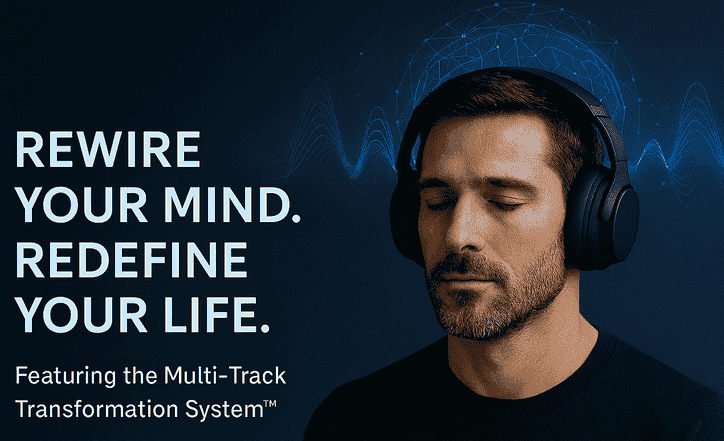Overcome Crowds / Social Anxiety Fears & Agoraphobia - with Hypnosis
Many people around the world suffer from a whole range of physical symptoms such as panic and anxiety, whenever they are out and about - shopping, traveling or around crowds of people.
 |
Do Crowds, Social Situations, Shopping or Traveling Fill You With Dread, Anxiety & Fear?
No problem. It's far more common than you may think, and even better, it can be reversed - easily and effortlessly, by going to the very source of the issue.
These can include symptoms such as difficulty breathing, shaking, heart palpitations, perspiring, dizziness, dry mouth, extreme worrying and impaired thinking.
Although it’s your mind that triggers these symptoms (leading some to mistakenly downplay their significance), you are experiencing genuine physical anxiety - in an environment where support is often lacking.
Part of the problem is that those dont experience social anxiety often have no understanding of people who are afflicted by it, and their indifference often only heightens the anxiety that the sufferer is experiencing.
I am a clinical hypnotherapist who has worked with a vast array of clients and issues over the years, to help overcome personal challenges and improve quality of life.
The most common and effective treatment for symptoms of the agoraphobia is by dealing with the fear right at the very source - the subconscious Your subconscious is the inner powerhouse controlling all your physical, mental and emotional functionality, holding the blueprint for optimizing any area of your life, including healing, wellbeing, motivation, and much more. Estimated to be 275,000 times more powerful than the conscious mind [University of Pennsylvania] mind - which is the place where all fears reside within the mind.
Relaxation and hypnosis are most effective of dealing with issues within the subconscious, as they help to 're-program' our mind and continually reduce the physical symptoms until they eventually disappear completely.
Social anxiety is simply a type of mental 'program' running on our internal software.
As your mind basically runs very much like a computer, this program is running the same way a computer runs software - giving the same result, again and again.
And so when the agoraphobia 'program' is changed or deleted, and replaced with an outlook that recognizes the benefits of the outdoors, the result is a feeling of calm control and a continual reduction of the physical symptoms until they disappear completely.
Being a type of anxiety disorder in situations where escape or help may not be available, such as crowded places or open spaces - makes the condition especially debilitating, and difficult for people to engage in everyday activities, and causing feelings of isolation and being overwhelmed.
 |
Common Causes of Agoraphobia
* Panic disorder
Those with panic disorder may develop agoraphobia as a result of experiencing panic attacks in certain situations or places, leading them to avoid those situations or places to prevent future panic attacks.
* Trauma
People who have experienced traumatic events, such as physical or emotional abuse, may develop the condition as a way of avoiding situations or places that trigger memories of the trauma.
* Genetic Makeup
Some research suggests that it may be inherited, and people with a family history of fear disorders may be more likely to develop the condition.
* Substance abuse
People who have dabbled heavily in drugs or alcohol may develop agoraphobia as a result of experiencing panic attacks or anxiety in certain situations while under the influence.
* Other disorders
People with other disorders, such as social or generalized anxiety disorder, may develop the condition as a way of avoiding situations that trigger their fear.
* Chronic illness
People with chronic illnesses, such as heart disease or chronic pain, may develop it as a way of avoiding situations or places that may worsen their symptoms, or where they may not be able to receive medical help if needed.
While there are a variety of treatment options available, hypnosis has emerged as a powerful tool in helping people overcome their fears and regain control of their lives.
Benefits of Hypnosis
Hypnosis has been shown to be effective in treating a range of anxiety disorders, including agoraphobia. The benefits of hypnosis for agoraphobia are numerous, and the following sections will detail these benefits in-depth:
Identifying and Addressing Root Causes
One of the key benefits of hypnosis for this condition is that it allows access to your subconscious mind - the area that controls automatic behaviors and responses, including fears and phobias. During the process, you can access your subconscious mind and reprogram it with positive suggestions, helping to overcome the fear response that causes the panic.
Another benefit is that it can help identify and address the root causes of the condition. This condition is often triggered by traumatic experiences, such as panic attacks or social embarrassment. Hypnosis allows you to identify these experiences and work through them, reducing the intensity of the anxiety and allowing you to feel more in control.
Creating Positive Associations
It can also be used to create positive associations with situations that trigger these feelings. For example, a hypnotherapist may guide a person to imagine a situation where they feel calm and in control, such as walking on a quiet beach.
By repeatedly visualizing and associating positive emotions with this scenario, you can begin to reframe your thinking and reduce the fear response to similar situations.
It has been show to be a particularly effective tool for inducing relaxation, which can help reduce the symptoms, feel more in control, and reduce the intensity of the fear response.
Empowerment to Move Forward
Another benefit is that it empowers you to take control of your life, by providing tools and strategies to cope with fear.
A strengthening sense of control and confidence in your ability to handle challenging situations emerges. This can be particularly beneficial for people who have struggled with agoraphobia for a long time, as it can help you break the cycle of avoidance and isolation.
Research on Effectiveness
Hypnosis has been shown to be an effective treatment for agoraphobia, with studies demonstrating its ability to reduce symptoms and improve overall quality of life.
In a study published in the International Journal of Clinical and Experimental Hypnosis, researchers found that hypnosis was more effective in reducing anxiety levels in people with agoraphobia than cognitive-behavioral therapy or relaxation techniques.
Another study published in the American Journal of Clinical Hypnosis found that the relaxing process was effective in reducing the severity of panic attacks and agoraphobia symptoms, with 82% of participants reporting significant improvement in their condition.
It has also been shown to have long-term benefits for those with this condition. A study published in the Journal of Consulting and Clinical Psychology found that it was highly effective in reducing the frequency and severity of panic attacks and other symptoms, with improvements lasting up to two years after treatment.
Benefits in Your Life
The positive impact on your life can be profound. With a safe and supportive environment, it can be transformative - particularly is you use audio hypnotic recordings in the safety of your own home - as you can explore the fears and work through your emotional and psychological issues.
It can offer a way to break the cycle of avoidance and isolation, allowing you to engage in everyday activities and connect with others. It can also help you achieve a greater sense of confidence and self-efficacy, empowering you to take control of your life and pursue your dreams.
It can certainly improve overall well-being and quality of life, by reducing anxiety levels and promoting relaxation, so you feel more calm, centered, and grounded on a regular basis. This also has a positive impact on your physical health, reducing the risk of conditions such as high blood pressure, heart disease, and stroke.
So seeking out a local reputable hypnotherapist may be a good starting point, or see further below for info on my hypnotic audio product specifically for this condition.
Other options include therapy with a psychologist, or working on the phobia yourself, by slowly introducing a tiny new activity to your day which you would not normally take, even if it is just going outside for a few moments, before going back in, while breathing through the experience.
You can build on these experiences in tiny incremental steps, one day at a time, as these tiny steps are not so arousing to our fears.
But it is very important not to do too much in one step - play the long game and just take it one day at a time.
This practice may help you to realise that in six months time you may be able to do a lot more than you can today.
If you wish to expedite your progress, and further explore overcoming this issue check out my guided hypnotic visualization below, which mentally guides you through the entire experience, allowing you to take back control at the subconscious level.
Footnote: If you’d like to explore this area further, check out the powerful audio program below - developed over years of refinement, combining hypnosis with cutting-edge brainwave technology to help you achieve your strongest results.
🎯 Agoraphobia Freedom - Hypnosis Program

- ✔ Liberate yourself from the fear of crowds
- ✔ Reduce anxiety associated with agoraphobia
- ✔ Build confidence to move freely in public spaces
- ✔ Lifetime access, instant download
$29.95
View Program Details →



 Self Help Index
Self Help Index













